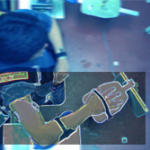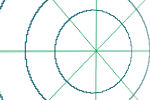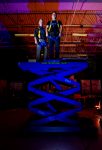The Neuromechanical cluster includes researchers and scholars dedicated to understanding how neurological, cognitive, sensory, mechanical and muscular systems interact to control human motion and its response to the physical environment. This includes the study of automatic and volitional behaviours, neuro-muscular control, sensorimotor integration and adaptation, systems physiology, biomechanics, motor learning and expert performance and applications for rehabilitation and sport.
Research Labs
CCM Lab
Professor: Hyosub Kim
Our lab aims to shed light on fundamental principles of human motor control and learning during both health and disease. To this end, we develop theories that are formalized, tested, and refined by combining computational modeling and behavioral experiments. We strive to practice open science and will develop open-source software to improve scientific rigor, regardless of discipline. All of this will be accomplished in a welcoming and collaborative environment that serves as a training ground for a diverse group of creative scientists.
Human Locomotion Research Laboratory
Professor: Tania Lam
The overall goal of the research in our lab is to advance our understanding of the neural control of human walking and the mechanisms involved in adapting walking to environmental demands. This basic understanding of the human locomotor system will, in turn, inform our efforts in the development and advancement of gait rehabilitation interventions for people who had a neurological injury.
Human Neurophysiology Laboratory
Professor: Tim Inglis
The focus of the Neurophysiology Laboratory is to evaluate the sensorimotor control aspects of the human nervous system using a variety of neurophysiological techniques. A major component of this laboratory will focus on using a nerve recording technique called microneurography. This is the first laboratory in Canada to use this technique, and one of a handful around the world. Microneurography makes it possible to record the single-unit (single axon) activity from the peripheral nerves of awake human subjects. Other neurophysiological techniques used in this laboratory are H-Reflex testing, galvanic vestibular stimulation, and the use of surface and indwelling electromyography to assess normal movement and movement in certain clinical Neurological populations.
 Motor Control and Learning Laboratory
Motor Control and Learning Laboratory
Professor: Ian M Franks
The Motor Control & Learning Laboratory exists to customize varied experimental tasks in the area of human motor control and skill acquisition. Individualized testing rooms are serviced by high speed data acquisition and results presentation equipment. Several computers with high speed A/D and D/A capability, allow on-line manipulation of real-time feedback results from motion recording systems. In addition the lab is equipped with an up-to-date eye movement recording system, electromyography, torque motors, high-speed videography, and transcranial magnetic stimulation equipment. Studies have been conducted including investigations into: on-line movement control; cognitive preparation of complex movements; eye movement-control; and postural adjustments during reaction time tasks. Recent work has centred on investigations into dynamical coordination landscapes; hemispheric control of bimanual aiming; equilibrium point control; and the effect of a startle on prepared responses.
 Motor Skills Laboratory
Motor Skills Laboratory
Professor: Nicola J Hodges
In the Motor Skills Lab. we study practice. Specifically, how to optimize practice to learn motor skills more effecitvely and/ or more efficiently. We commonly conduct laboratory experiments, with new learners, to determine how manipulations to practice variables (such as instruction, feedback, order of practice) impact on learning and transfer. These lab. tasks range from relatively novel, yet easy to acquire skills (adapting to new visual-environments, learning 2-handed coordination actions, key-press sequencing) to more "true-to-life" skills (kicking, throwing, juggling). We also learn about practice by studying people who are already skilled. Motor experts provide a rich source of information about practice histories and current practice habits to give insights into what practice entails to develop expert-like performance.
 Neural Control of Posture & Movement Laboratory
Neural Control of Posture & Movement Laboratory
Professor: Mark G Carpenter
The main objective of the lab is to identify the neural, musculo-skeletal and psychological factors that contribute to balance deficits and falls associated with age, Parkinson's disease, vestibular loss and spinal cord injury. The second objective is to identify optimal exercise, training and treatment strategies to improve age and disease-specific balance deficits and reduce the occurrence and impact of falls.
Perceptual Motor Dynamics Laboratory
Professor: Romeo Chua
The research focus of the Perceptual-Motor Dynamics Laboratory is centered on the study of human perceptual-motor control. The long-term objective of this research program is to understand the neurobehavioural mechanisms underlying the sensory and perceptual contributions to the preparation and execution of goal-directed actions. The research program is motivated by longstanding interests in issues pertaining to:
- the volitional and automatic control of visually-guided action
- the processes underlying sensorimotor adaptation and learning
- the mechanisms underlying motor preparation.
Sensorimotor Physiology Laboratory
Professor: Jean-Sébastien Blouin
Researchers in the Sensorimotor Physiology Laboratory investigate human physiology from an integrative perspective. Specific research interests include i) physiological processes underlying human balance, ii) physiological responses evoked by whole-body (simulating whiplash motion) or localized perturbations and iii) neural control of the deep and superficial neck muscles. The work on whiplash injuries is performed in collaboration with MEA Forensic Engineers & Scientists in Richmond, BC. Some research projects are applied to injury prevention or patient populations to determine the neuromechanical effects of known injuries/pathologies on the sensorimotor system.
The Sensorimotor Physiology Laboratory is equipped with feedback-controlled motors, 3D motion, accelerometry and force systems as well as neural and physiological measurement and stimulation units. A large 6 DoF robot and virtual reality display are also available through collaborations with the Institute for Computing, Information and Cognitive Systems and Collaborative Advanced Robotics and Intelligent Systems on the UBC campus.